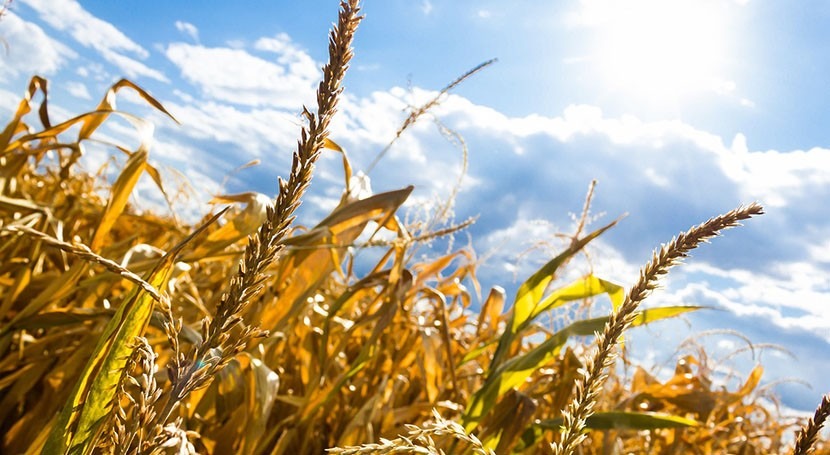Research finds Caribbean islands are uniquely susceptible to flash droughts
The word "drought" typically conjures images of parched soil, dust-swept prairies, depleted reservoirs, and dry creek beds, all the result of weeks or seasons of persistently dry atmospheric conditions.
In the sun-soaked islands in the Caribbean, however, drought conditions can occur much more rapidly, with warning signs appearing too late for mediation strategies to limit agriculture losses or prevent stresses on infrastructure systems that provide clean water to communities.
Such occurrences—known as flash droughts—are the focus of a new paper authored by Assistant Professor Craig Ramseyer of the College of Natural Resources and Environment and published in the Journal of Hydrometeorology. The paper's finding is that Caribbean Islands are uniquely susceptible to sudden droughts, and Ramseyer advocates for alternative methodologies to more accurately measure dry conditions in the region.
"The tropics have extremely intense solar radiation, so atmospheric processes tend to be expedited," said Ramseyer, who teaches in the Department of Geography. "Despite often receiving daily rainfall, island ecosystems are particularly vulnerable to drought conditions."
Ramseyer, whose research focuses on tropical rainfall and severe weather impacts in the Caribbean, utilized a new drought index that considers the atmospheric demand for moisture to identify drought risk conditions instead of more traditional soil moisture measurements.
The paper's finding is that Caribbean Islands are uniquely susceptible to sudden droughts
"This new drought index is really developed to try to identify the first trigger of drought by focusing on evaporative demand," said Ramseyer, who collaborated on the paper with Paul Miller, an assistant professor at Louisiana State University. "Evaporative demand is a measure of how thirsty the atmosphere is and how much moisture it can collect from soil or plant matter."
Ramseyer stressed that identifying drying conditions earlier is a key step to limiting the impacts of droughts.
"A lot of drought observation is based on soil moisture, but in tropical environments, a decline in soil moisture is a response to other things that have already happened so you're further down in the chain of events," he said. "We can mitigate a lot of losses in, say, agriculture, by being able to forecast sudden, anomalous increases in evaporative demand."
The impacts of drought conditions extend beyond agriculture: Tropical ecosystems are also strongly impacted by dry atmospheric weather conditions, and access to fresh water is a necessity for both communities in the region and a tourism industry that is a central driver for economies in the Caribbean.
A new position for atmospheric research
To better understand how that interplay of meteorological patterns impacts drought conditions, Ramseyer utilized 40 years of data from a long-term ecological research project in the El Yunque National Forest. He found that flash droughts have routinely occurred in the Caribbean and that occurrences of drought are not limited to traditional dry seasons on the island.
"In terms of climate, Puerto Rico is situated at a crossroads, buffered on the west by the El Niño southern oscillation and by the cooler North Atlantic oscillation on the east," said Ramseyer. "Because of that, Puerto Rico has a unique geography for researching atmospheric changes."
The looming concerns over global warming have only accelerated the need for meteorologists to better understand drought occurrences in the Caribbean and enhance monitoring of moisture conditions in the region.
"A warming planet results in more moisture available in the atmosphere overall, which means that the kinds of short-term precipitation events common to the Caribbean will increase in intensity," said Ramseyer. "Meanwhile, droughts are becoming higher in magnitude, so climate change is altering both extremes."
Ramseyer, who helped secure Virginia Tech's membership in the University Corporation for Atmospheric Research this year, said developing clearer criteria for flash drought conditions is an important first step toward addressing the infrastructure challenges that Caribbean communities are likely to face.
"The key current and future issue for the Caribbean is all about finding a way to capture rainfall successfully and draw it out slowly to mitigate evaporation losses," said Ramseyer. "Puerto Rico and all of the Caribbean have water infrastructure challenges that must be addressed to accommodate these trends."
Geography department chair Tom Crawford said Ramseyer's paper reflects a utilization of big data in tackling climate and meteorological challenges.
"Dr. Ramseyer's research applies advanced computing and geospatial science to make significant contributions to the problem of flash droughts and precipitation variability broadly," said Crawford. "In addition to his research impact, his course on Climate Data Analysis and Programming is training the next generation of researchers on cutting edge computational techniques applied to the changing climate."
Ramseyer advocates for additional research into understanding the relationship between flash drought events and economic losses and how future drought events can be better communicated to stakeholders and communities.













